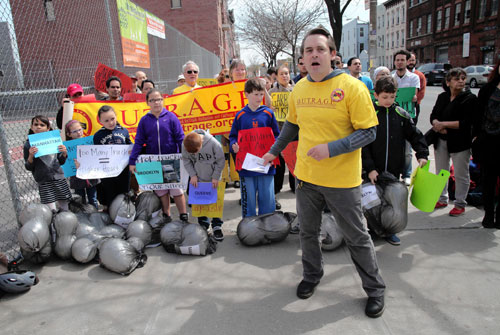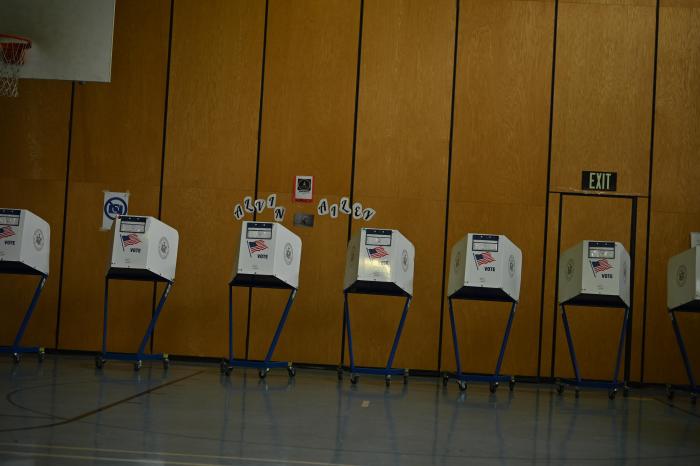Greenpoint and Williamsburg are unfairly burdened with stinky, loud, polluting trash trucks, and a bill pols and activists are touting as a cure would not do much to change that.
The legislation, introduced by councilmen Steve Levin (D–Greenpoint) and Antonio Reynoso (D–Williamsburg), calls for all the city’s waste transfer stations, where trash is unloaded from trucks onto barges, to place a cap on how much trash they can take in. The officials and activist groups have long argued that the two neighborhoods should not be saddled with their 15 waste transfer stations, which handle nearly a third of the 35,000-plus tons of garbage that New Yorkers create each day.
“This is about equity in communities,” Levin said. “The amount of trash Williamsburg and Greenpoint are getting is 10 times than other districts, and it is time to address that.”
The bill would force stations currently under construction, to pick up the slack, but stations could actually take in more than they do now and the area in question would still shoulder a disproportionate load. The proposed law calls for limiting what stations can take in during the first year to 125 percent of their current volume, then measuring the amount they process that year, and setting the cap at 18 percent less than that amount the following year, under the assumption that the new facilities will process the difference.
The 15 facilities currently process between 9 and 10 tons per day, meaning that they could end up getting as much as 10,250 tons per day, under the legislation.
An activist said that the mist trash trucks trail behind them could pose a health threat.
“We do not know what is in all the small air particles, and that is scary,” said Rolando Guzman, a Williamsburg resident and an organizer with Organization United for Trash Reduction and Garbage Equity. “We need to find relief for the people in this community.”
The trouble is, pols representing other neighborhoods share the councilmen and their agitator allies’ hatred of waste transfer stations, and have fought their creation and expansion at every turn. The Council drafted a plan in 2006 to lighten the burden on Williamsburg and Greenpoint, as well as parts of the Bronx and Queens, by building or revamping five stations around the city. But nine years later, only one station has been completed and neighborhood opposition campaigns have slowed the development of facilities in Manhattan and in Brooklyn’s Bath Beach neighborhood.
Depending on when new transfer stations that are now in the works come online, the first possible downturn in Williamsburg and Greenpoint’s trash load would come in two years, if the bill goes through, Levin said.
The legislation was drafted with help from the group New York Lawyers for the Public Interest, Levin said.
Levin and Reynoso rallied with fellow pols and community and environmental groups, as well as union activists, today at 11 am.





















